 Bolshoi Theatre of Belarus
Bolshoi Theatre of Belarus
Bolshoi Theatre of Belarus
Bolshoi Theatre of Belarus
 Bolshoi Theatre of Belarus
Bolshoi Theatre of Belarus
Bolshoi Theatre of Belarus
Bolshoi Theatre of Belarus
General partner
![]()
Grand finale
(the results of the 3rd Minsk International Christmas Singing Competition)
Ulkar Aliyeva
The final of the Minsk International Christmas Singing Competition always causes a stir among the Belarusian music lovers, which is evinced by a full house. Well, to hear the artists, who the international panel of judges deemed to be worthy of participation in the final round, sing is always interesting. Especially when the performances of the finalists (the rendition of comprehensive opera scenes) go beyond the frame of a purely concert execution and are held in the format of a semi-stage (somewhat in-between a classical concert and lush large-scale productions). And if for the majority of the finalists performing on stage┬Ā accompanied by the symphony orchestra is common practice, judging by the questionnaire data, for Karina Kheruntc and a very young Kazakh singer Nazym Sagyntay it is a rare opportunity to try out┬Ā the opera scene, to feel the intoxicating ŌĆśsweetnessŌĆÖ of applause of the audience and hear the ŌĆśbreathingŌĆÖ┬Ā of more experienced and renowned stage partners (of the leading soloists of the Bolshoi Theatre of Belarus Elena Bundeleva, Natalya Akinina, Sergey Frankovsky, Alexei Mikutel, Vladimir Gromov, Dmitry Kapilov and (I would especially like to mention) the gorgeous Vladimir Petrov, dashing Ilya Silchukov, so naturally starring as pedantic Onegin, and charming Anastasia┬Ā Moskvina with her crystal-clear soprano).
All the finalists approached the third round from a purely practical point of view (unsurprisingly): the most frequently performed repertoire, the staples of most of the post-Soviet era opera houses, was selected. The program was divided into two parts equally featuring Italian music classics (5 pieces) and Russian composers (6 pieces), which gave the finalists the opportunity to showcase their artistic skills. If the music of Gioacchino Rossini, Giuseppe Verdi and Giacomo Puccini with all its divine beauty, depth and bravura showiness offers a broad scope for emotional expression for the performers, the music of Russian composers like Mikhail Glinka, Pyotr Tchaikovsky, Aleksandr Borodin, Nikolai Rimsky-Korsakov is conducive to the all-embracing merge of musical expression (observation of phrasing, gradation of the sound of the voice) with the poetic text and its metaphorical reflection in a word.
The two Russian mezzos Margarita Finogentova and Karina Kheruntc chose the duet of Rosina and Figaro from the first act of the opera Il Barbiere di Siviglia ŌĆśDunque io sonŌĆ” tu non mŌĆÖinganni?..ŌĆÖ by Rossini. Twice in one evening the Belarusian baritone Vladimir Gromov, clad as Harlequin,┬Ā had to substantiate the seriousness of intentions of Count Lindoro to the two charming vocalists, and, taking into consideration the fact that Gromov sings the part of the Count in The Marriage of Figaro, the situation appears all the more ambiguous. The choice was excellent, but tricky to execute. Whereas the gala concert directors Natalia Baranovskaya and Daria Potaturko retained the entourage of the two performances (artist Alexander Kostyuchenko) and even the mise en scene, unchanged, giving the viewers the opportunity to draw a conclusion who was the best.
Both vocalists coped with the coloratura difficulties of the part of Rosina very well. However, the vocal performance did not demonstrate much technical brilliance: there were fairly accurate passages with high notes of the upper register without much effort, yet the two lacked the ease and freedom (possibly the singers were affected by competition anxiety and fatigue.
The Belarusian mezzo ŌĆōKatsiaryna Mihnavets, a towering beauty ŌĆō chose a spectacular in terms of execution scene of Lyubasha and GryznoyŌĆÖs duet ŌĆśStupayte vseŌĆ” Zachem ty?... Ya sprosit tebya khotelaŌĆ”ŌĆÖ from the opera Tsar's Bride by Nikolai Rimsky-Korsakov. This singer possesses quite formidable presence, therefore the part was not only particularly well-suited to the voice of the young artist, but also allowed her to capture the image and the psychological and emotional state of the rejected woman. However, the image was somewhat aggressive (it looked as if she was going to ram into her partner Vladimir Petrov ŌĆō Gryaznoy), therefore, it becomes clear why the oprichnik chose to dump such a feisty young mistress at the first opportunity.
The third Russian mezzo Natalia Lyaskova chose a very modest love confession of Konchakovna ŌĆśTy li, Vladimir moyŌĆ”ŌĆÖ to the princely son sung by Aleksey Mikutel from the opera Prince Igor.┬Ā The singer failed to fully demonstrate and reveal her talent. Given that in the first round she chose KonchakovnaŌĆÖs cavatina, it seems that this choice was determined by the fact that this part was on her repertoire, and, inter alia, was among the well-practiced ones. As a result, all the four mezzos who remarkably demonstrated their worth in the second round remained outside the prize podium.
On the contrary, the tenors whose performances were somewhat bleak in the second round caught the "second wind" in the final. The Armenian tenor Tigran Ohanyan in the famous scene of the duet ("with a key" of Rodolfo and Mimi from the opera La Boh├©me by Puccini) conquered the poor seamstress and the audience with his supple voice, velvety overtones and luxurious high notes. His Belarusian counterpart Alexander Mikhniuk, with a tad of the hysteria and desperation, bid farewell to the woman he loved and his future in the textbook aria of Lensky from the opera Eugene Onegin where he demonstrated quite an impressive fall after being struck by a bullet in a duel. As a result, the international jury awarded the Grand Prize of the 3rd Minsk international Christmas Singing Competition to Tigran Ohanyan, and the 2nd prize to Aliaksandr Mikhniuk.
The Russian countertenor Andrey Nemzer has enjoyed a huge success during the competition. When he finished performing the detailed Ratmir's aria from Mikhail Glinka's opera Ruslan and Ludmila he received a rapturous ovation from the audience: his voice is quite unique, for three qualifying rounds running,┬Ā it sounded uniform, full in all registers, including his robust high notes that┬Ā impressed everyone (not to mention his acting skills). The first prize of the competition is a worthy reward for such a talented singer, whose performances can become a real gem for Baroque operas and oratorios, and musical theatrical works of the classical period.
Of the three sopranos represented in the final, the performance of a Russian singer Zarina Abaeva was acknowledged to be the most bright and skilful one with the 3rd prize as a natural consequence of her success. In all three rounds, she demonstrated a good vocal and technique base, with beautiful timbre, excellent phrasing and genuine artistry. In the final round, everyone witnessed the true Tatiana (the final scene of Pyotr Tchaikovsky's Opera Eugene Onegin) ŌĆō confident and calm in her right to be happy - the image where the artist revealed herself as a true opera professional.
The two sopranos┬Ā Margharyta Liauchuk (audience choice award) and Nazym Sagyntai left a mixed impression. The young singers, because of their age and lack of experience, anchored their hopes on their vocal cords and a number of learnt effects. A good voice, theatrical drive in particularly sensitive places can find its rave reviews on the part of the audience, but it will bring a somewhat superficial attitude to the art.
I would like to mention some of the stage stiffness of the Kazakh singer, and the lack of sense of the stage of the Belarusian soprano. A modern opera house requires not only the presence of a good voice, but also certain acting skills, transformation into an artistic image, the image of the hero/heroine with the appropriate body plastique. Once Richard Wagner, defining the principles of operatic drama, wrote, ŌĆśgesture and orchestra melody make a comprehensible whole in the same way as the song-melody is related to the words of poetry.ŌĆÖ┬Ā The unity of music and artistry does not only affect the depth of disclosure of feelings and experiences, but also the ŌĆśreadabilityŌĆÖ for the audience, when drama becomes transparent without the explanation of the subtitles.
In this regard, following the results of all the three rounds, I would like to reflect on the overall artistic side of the performances of many of the young contestants. Every forum of the Minsk International Competition of Young Singers serves as a mirror reflecting the state of this facet of the performing arts. Today the mirror reveals a very pertinent problem of the young contestants, namely, the role of teachers in shaping the artistic image of the vocalists. A teacher should be a mentor first and foremost. The lack of rigor on the part of the teachers to voice training, breathing, choice of repertoire is somewhat puzzling, and a singerŌĆÖs skill level is the reflection of a teacherŌĆÖs work. And this does not only concern the vocal technique, but also the stage culture of the young performers, which embraces everything: artistry, choice of costume (often quite extraordinary, including the┬Ā ones chosen for the awards┬Ā ceremonyŌĆō all the same, one could have donned something more befitting the official part of the event in order to look consistent with the spirit of the evening), poise and posture on the stage (the jury could often observe hunched backs and a crooked gait), bows (some contestants almost crouched).
I would like to dedicate a separate line to the great performance of the Russian bass-baritone Oleg Budaratskiy although the artist associates himself with the high bass, who, much to the chagrin of the public, was left without a prize. A wonderful, beautifully deep luscious timber with confident all-range mastery; the expressive manner of singing with no traces of forcing the sound; the beautiful diction and excellent acting transformation, his every appearance on the stage became a mini-masterpiece and an offering to the public. In the final, Oleg Budaratskiy was very persuasive in the part of Vladimir Galitsky from the opera Prince Igor by Alexander Borodin. To play a drunk on stage is often a daunting task for many eminent dramatic performers, but Oleg Budaratskiy played all the stages of alcoholic intoxication very convincingly (up to the very end where he fell flat on the stage) while managing to excellently cope with his vocal part. Indeed, the young Russian singer is an accomplished artist, and I want to wish him to keep on and never lose his talent.
Overall, the finale was bright, expressive and spectacular. The management of the Bolshoi Theatre of Belarus in order to save the audience from the melancholic bore of the voting pause, decided to fill this kind of "technical break" with the performances of the winners of the previous vocal competitions such as Nadezhda Pavlova, Elena Stikhina, Viktor Mendelev, Ilya Silchukov, Mikhail Malafiy, Lasha Sesitashvili and Ramiz Usmanov. During their performances, the public could see how (in professional terms and in terms of stage presence) the singers have improved, and there is no doubt they owe this impetus to their enhanced operatic skills and stage successes to the Minsk International Christmas Singing Competition. Among the extravaganza of the music and voices I would like to highlight a brilliant performance of the aria of Cun├®gonde by Nadeshda Pavlova from the musical Candide by Leonard Bernstein, who executed it in the style of the hyperbolically grotesque Cabaret by Liza Minelli. One should note the wonderful comic talent of Ilya Silchukov in the famous┬Ā cavatina of Figaro from the opera Il Barbiere di Siviglia by Gioacchino Rossini: Ilya entered the stage singing the first lines of the cavatina an octave higher (a good-natured parody of the winner of the competition countertenor Andrey Nemzer), then removed the hateful tight belt that restrained his breath and kicked it away ŌĆō and the audience was at his feet. Not to mention a wonderful duet of Mikhail Malafiy singing the part of Don Carlos and Lasha Sesitashvili as Rodrigo from the opera La forza del destino by Giuseppe Verdi.
Summing up, the perfectly organized finale was a true gem of this unforgettable vocal forum of young performers. The author of these lines joins in eulogizing the winners and participants of the 3rd Minsk International Christmas Singing Competition. I believe it is impossible to predict what the future holds for the finalists and the participants of the competition ŌĆō it will entirely depend on the singers themselves: their work in terms of the development of professional skills, of mastering the new repertoire, and of course a bit of luck during the crucial moments. While the Minsk Singing competition smoothly passes to the 7th Minsk International Christmas Opera Forum, which, according to the programme, will present unforgettable moments to the devotees of classical opera art, including the guest performance of the famed Odessa Opera House. This means that the Belarusian music lovers are in store for a grand fete.
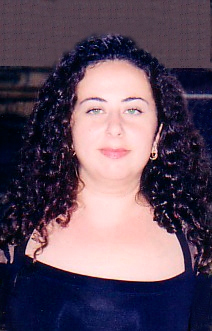
Ulkar Aliyeva is a theatre and music critic, Doctor of Arts, Professor of the Azerbaijan National Conservatory.
Ulkar Aliyeva graduated from the special music school named after Bul-bul with honors and the Hajibeyov Baku Academy of Music under the tutelage of a famous Azerbaijani Soviet musicologist Professor Elmira Abasova.
She actively cooperates with mass media of Azerbaijan and Russia such as the websites of the Day.az, Vesti.az, Ann.az, Teatralspb.ru, Belcanto.ru; newspapers Zerkalo, Kaspiy, Echo, Azerbaijan Izvestiya; magazines Culture (Azerbaijan-Russia), Ballet (Russia).
She is the author of 4 books (the last monograph was published in Germany and was included in the international catalogue Inventions in Music), 2 brochures, 55 scientific and over 600 journalistic articles that address actual problems of modern musicology.
She is a permanent representative of Azerbaijan at various international conferences and media forums.
She is also a member of the International Musicological Society (Switzerland) and the American Musicological Society, a member of the Azerbaijan Union of Journalists .
In 2016, Ulkar Aliyeva was awarded the highest prize of the Azerbaijan Union of Journalists the Hasan bey Zardabi Award.
┬Ā
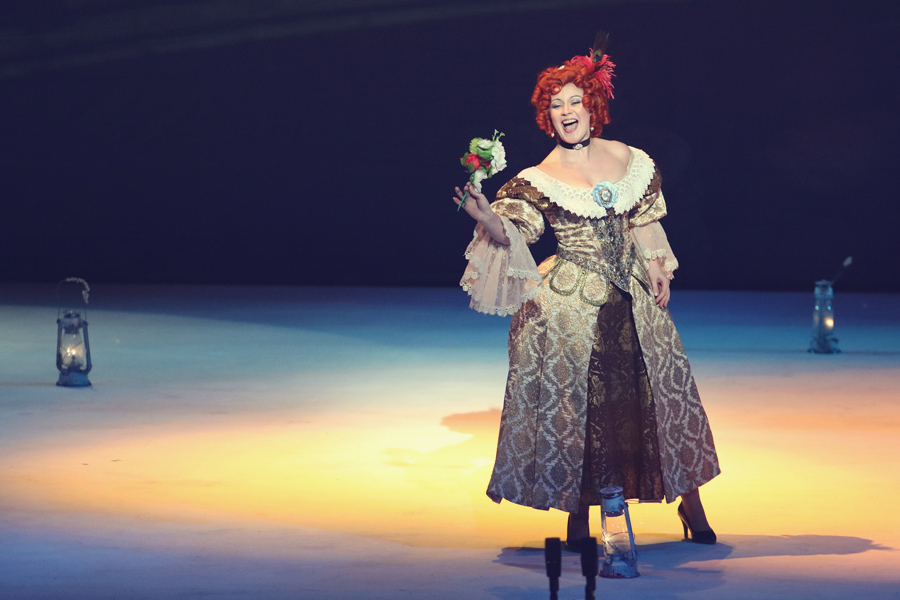
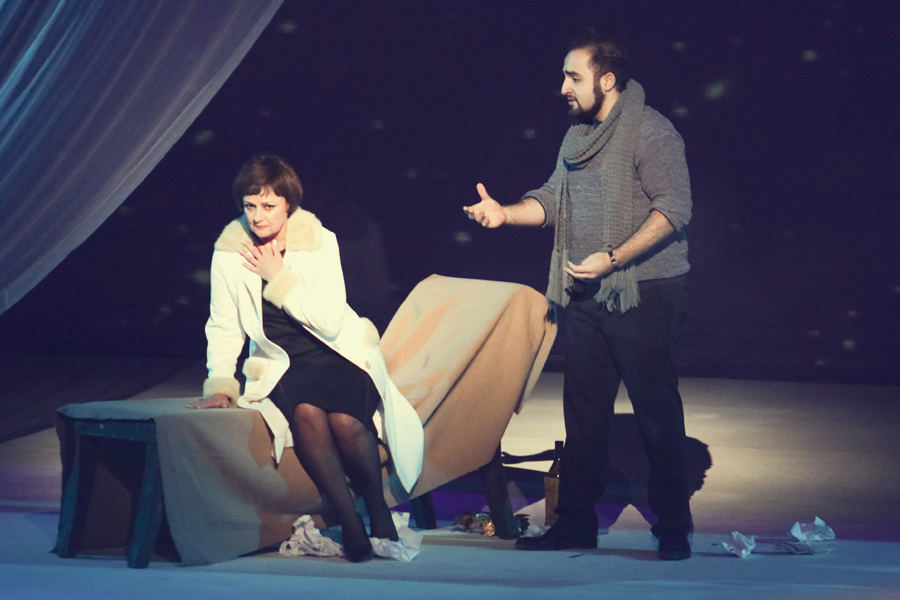
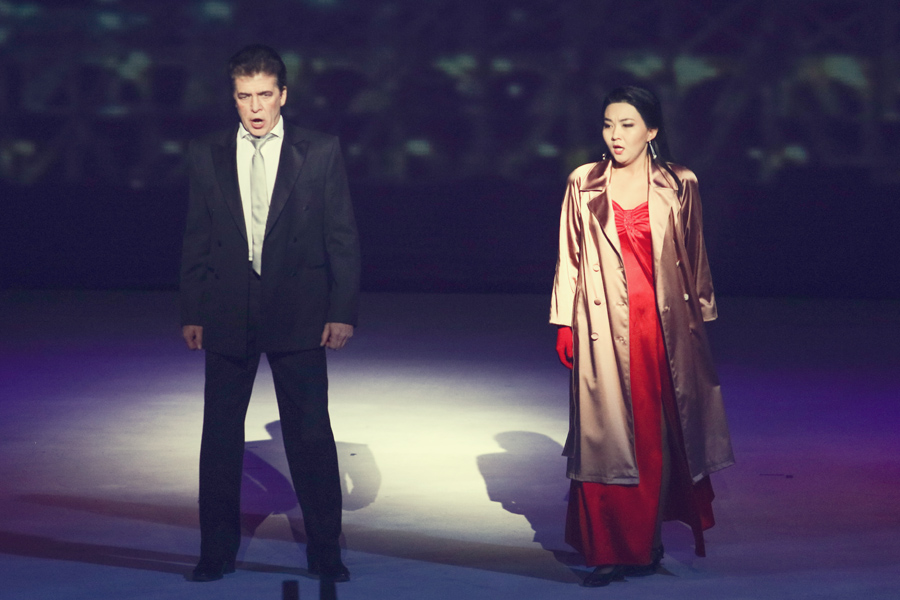
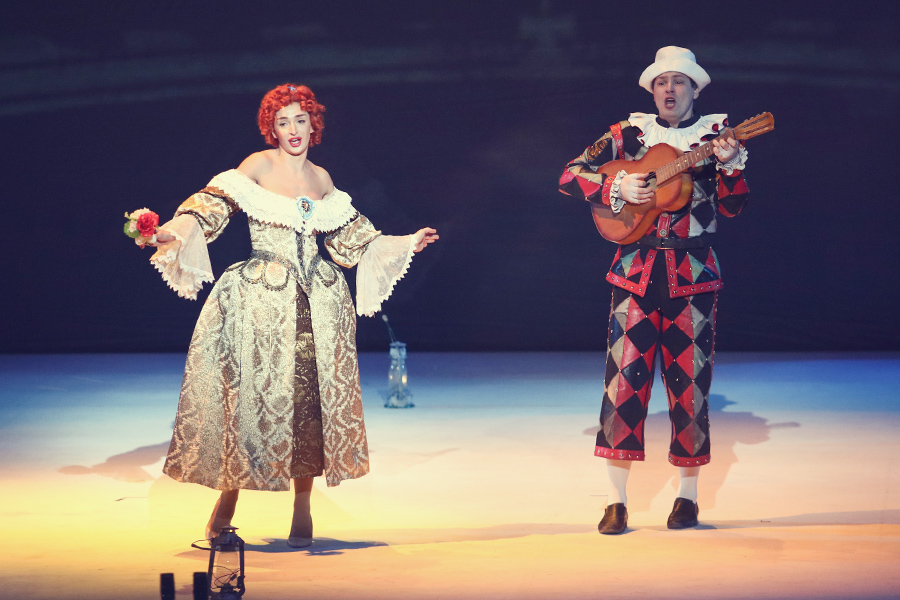
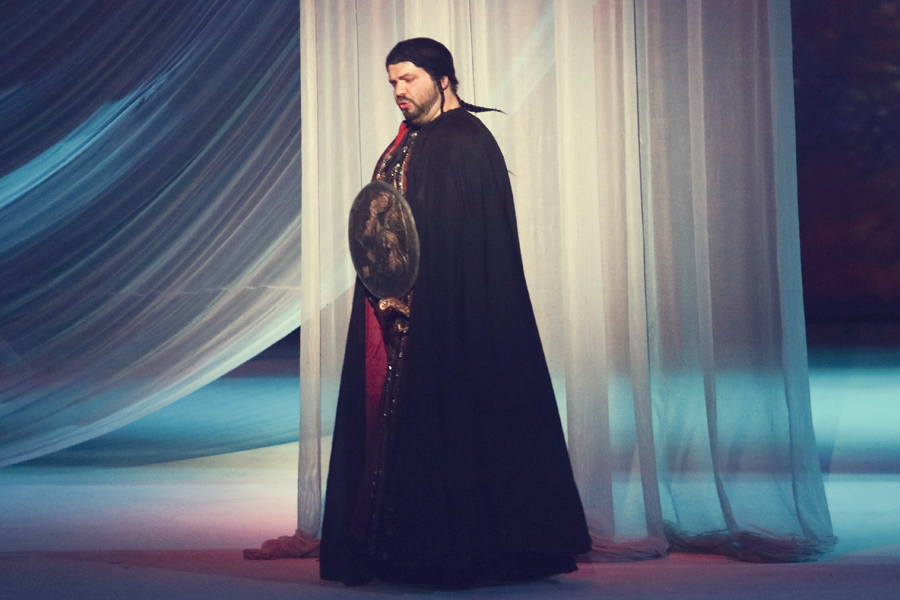
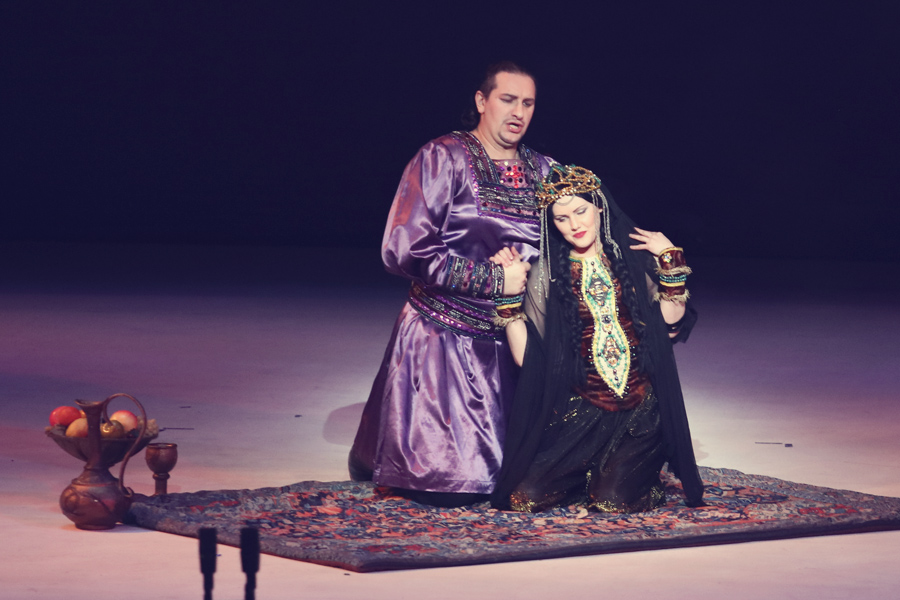
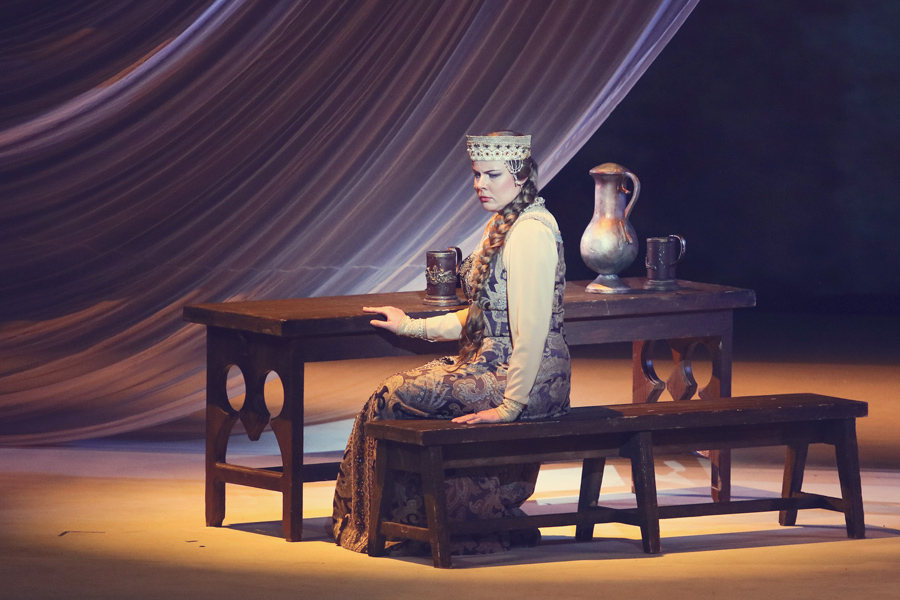


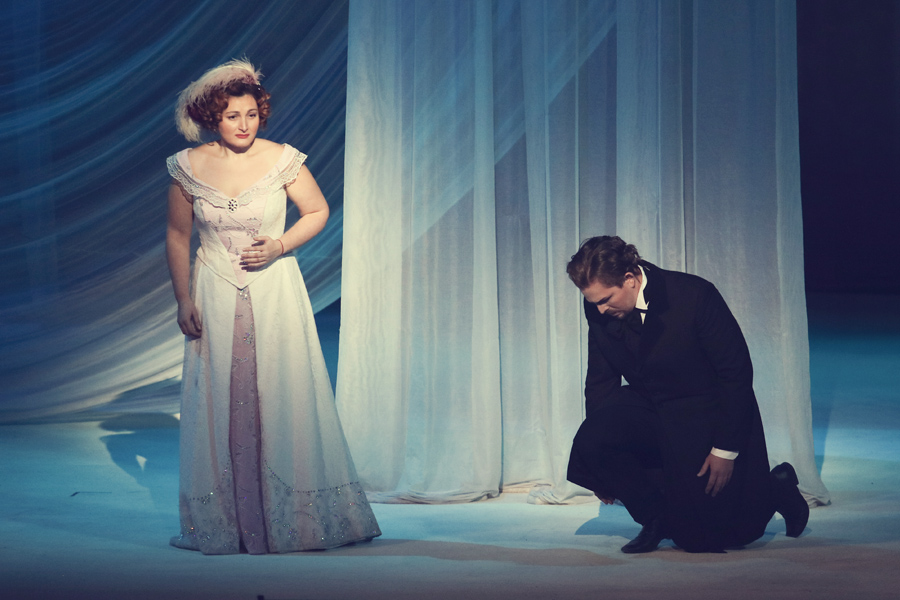
┬Ā
┬Ā